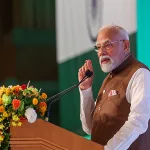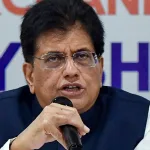The gendered dimension of corruption is one of the important focal areas for the G-20 Anti-Corruption Working Group meeting that is scheduled to be held in Rishikesh later this month. Women experience corruption differently from men, because they are more economically and socially vulnerable. Gendered power differentials, fuelled by historic patterns of discrimination, can embolden discriminatory behaviour that targets women for coercive corruption and other forms of exploitation. In addition, as a result of societal norms, women are frequently more exposed to higher corruption risks in areas of activity determined by stereotypical gender social roles and specific needs. Where women remain the primary caretakers of the family, they can be regularly confronted with corruption when accessing public services such as health, education, water and sanitation. There is a general consensus that corruption has long term consequences on women’s education outcomes, and that it impacts their psychological and physical health as well as gender equity, ultimately affecting long term social and economic progress.
Looking at the differentiated impact of corruption also calls for examining women’s inclusion into the labour market and decision-making processes, as increased diversity and inclusion will result in curbing corruption. The latest ILO statistics reveal that the gender gap in labour force participation stands at 29.2 percentage points among people aged 25 to 54, with female participation at 61.4 per cent and male participation at 90.6 per cent. Putting in place appropriate legislation and institutional arrangements, including those pertaining to corruption, can further women’s participation in the formal economy. Several studies have incontrovertibly established how information asymmetries result in women’s limited access to credit, thereby curbing their opportunities for business investment and job creation. While digitalization of financial services can be a solution, there is a very pronounced digital gender divide prevalent world-wide. As per the latest estimates of the International Telecommunication Union (ITU), only 57% of women have access to the internet, as against 62% of men. This puts women at a serious disadvantage when it comes to utilizing the myriad opportunities that are available through e-commerce and digital economies.
The world has been addressing this important issue in various international fora. As highlighted in UNODC’s Report titled ‘The Time is Now’ published in December 2020, gender equality interventions positively impact the fight against corruption and vice versa. This symbiotic relationship throws open great possibilities for gender-aware and evidence-based policy making at a global level. Through the Political declaration of 2021 Special Session of General Assembly of United Nations, members committed to improve their understanding of the linkages between gender and corruption, including the ways in which corruption can affect women and men differently, and to continue promoting gender equality by mainstreaming it in relevant legislation, policy development, research, projects and programmes. G20 Anti-Corruption Working Group (ACWG) has been at the forefront of addressing emerging issues related to corruption. Through the 2019 G20 Leaders’ Declaration, G20 countries welcomed the work on the linkages between corruption and gender being undertaken by relevant international organizations.G20 ACWG Action Plans 2019-21 and 2022-24 includes the commitment of the member countries to continue to deepen their understanding of the linkages between gender and corruption and discuss possible actions by understanding as to how the gender dimension could be included in anti-corruption programming and policies.
A host of initiatives have been taken by the Government of India towards increasing transparency and accountability in governance, which have had a multiplier effect on women’s empowerment and reducing their vulnerability to corruption. Direct Benefit Transfer schemes like the National Social Assistance Program (NSAP), Prime Minister’s Matru Vandana Yojana (PMMVY), National Rural Livelihood Mission (NRLM) and National Health Mission (NHM) have significantly increased women’s disposable income and their financial decision-making capabilities. The JAM trinity integrates Jan Dhan bank accounts, direct biometric identification under Aadhaar, and mobile phones to enable direct transfers of funds. The Pradhan Mantri Jan Dhan Yojana (PMJDY) has effectively closed the gender gap in bank account ownership – 55.6% of Jan Dhan accounts are held by women. Combined with Aadhar based authentication and Mobile Fin-tech services, the JAM Trinity has a crucial role to play in women’s economic empowerment. Through the Pradhan Mantri MUDRA Yojana (PMMY), women entrepreneurs have received tremendous support. By 2030, an estimated 30 million women-owned MSMEs are expected to flourish in India, providing employment to 150million people. The ‘Womaniya’ initiative of the Government e Marketplace (GeM) gives women entrepreneurs access to markets, finance and value-addition by linking last-mile women producers and service providers with local government buyers. As on January 15, 2023, more than 1.44 lakh women micro and small enterprises (MSEs)— are registered as sellers and service providers on the GeM portal and have fulfilled more than 14.76 lakh orders worth ₹ 21,265 crore in gross merchandise value (GMV).
The G20 Anti-corruption Working Group meeting in Rishikesh will draw from the global and Indian experiences of gender sensitive governance and anti-corruption best practices with a gender dimension, to set the narrative for future initiatives by G20 member countries. Some of the questions that will be explored further include: (a) how can policy makers in the public and private sectors acknowledge the need to understand the gender differential impact of corruption, and to design policies that address women’s and men’s specific concerns and experiences? (b) How can governments combine targeted anti-corruption policies with efforts to empower women in governance? (c) What is the role of gender analysis and sex disaggregated data on corruption in bringing a greater gender focus in anti-corruption measures? Expert panellists from India and abroad will extensively discuss these issues and show the way forward in gender sensitive governance and policy-making as a potent tool against corruption.
(The Author is Secretary, Department of Personnel & Training)





